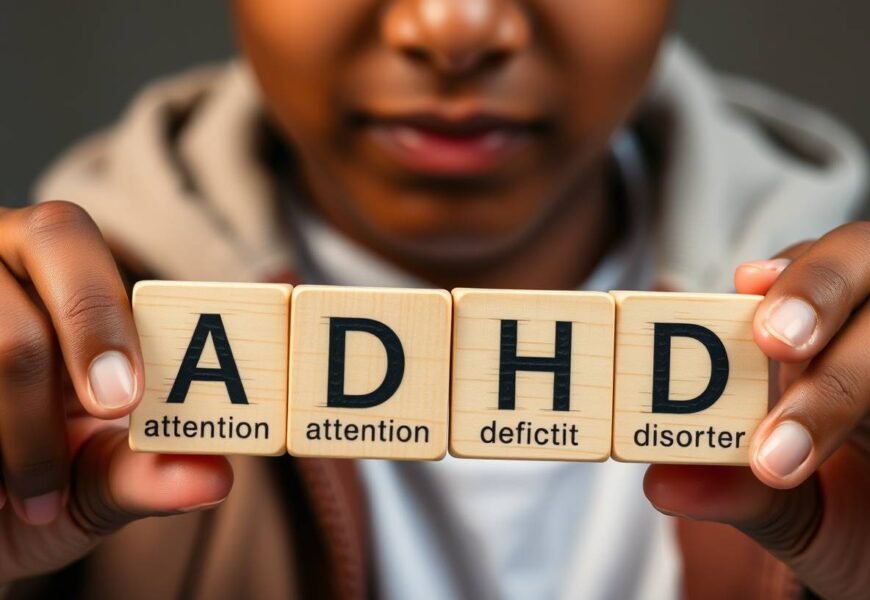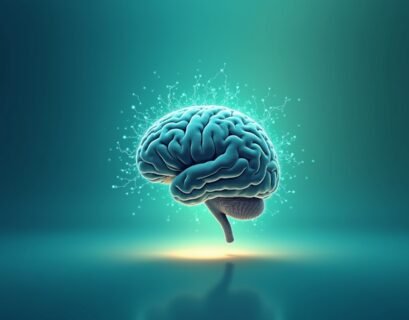In a bustling coffee shop, Emma sits across from her friend Sarah, nervously tapping her foot and fidgeting with her hair. It’s hard to focus on the conversation when distractions seem to pop up everywhere. The buzz of the espresso machine, the chatter from nearby tables, and the enticing smell of fresh pastries all compete for her attention. As someone who has been navigating life with Attention Deficit Hyperactivity Disorder (ADHD), Emma often struggles to keep her thoughts organized, especially in stimulating environments. This scenario resonates with many individuals living with ADHD, shedding light on the everyday challenges and triumphs that come with this condition. In this article, we will explore what ADHD truly is, practical strategies for managing it, relatable anecdotes, and hope for overcoming the obstacles it presents.
Understanding the Core Issue
What is ADHD?
Attention Deficit Hyperactivity Disorder (ADHD) transcends the stereotypes often portrayed in movies and social media. At its core, ADHD is a neurodevelopmental disorder that primarily affects attention, impulsivity, and activity levels. While it’s commonly diagnosed in children, ADHD can also persist into adulthood, often manifesting in unique and complex ways. The symptoms of ADHD encompass more than just an inability to concentrate; they can lead to emotional dysregulation and disrupt daily functioning.
The Complexities of ADHD
Understanding ADHD is crucial for both individuals diagnosed with it and those around them. It’s easy to confuse ADHD with simple carelessness or immaturity, but the reality is far more nuanced. For many, ADHD can lead to a struggle with executive functioning — the mental processes that help us plan, focus, remember instructions, and juggle multiple tasks.
Adults with ADHD often report feeling overwhelmed by the demands of daily life. Simple tasks like completing a work project or organizing a household can seem insurmountable without effective coping strategies. They may experience sporadic bouts of hyperfocus, where they can dive deeply into an interest for hours, only to transition to distractibility moments later.
The Impact on Relationships
ADHD doesn’t just affect individuals; it influences relationships too. Partners, family members, and friends may struggle to understand the challenges associated with ADHD. Consider how Emma feels when her inability to focus leads her to interrupt Sarah or forget about plans they made. These behaviors can cause frustration and misunderstandings, reinforcing the need for open communication and education about ADHD.
Moreover, many individuals with ADHD grapple with feelings of inadequacy, which can exacerbate anxiety and depression. This emotional component is vital in decoding ADHD and understanding its widespread impact.
Practical Tips and Strategies
Navigating life with ADHD doesn’t have to feel overwhelming. With the right strategies, individuals can empower themselves to manage symptoms and improve their daily functioning.
Structured Environment
One effective approach is to create a structured environment. This can involve establishing routines and using visual reminders, like calendars, color-coded notes, or digital applications that send timely alerts. Emma discovered that by setting a consistent schedule for tasks and responsibilities, she significantly reduced her anxiety levels.
Break Down Tasks
Breaking tasks into smaller, manageable steps can also offer substantial relief. For instance, instead of tackling “clean the house,” Emma found it helpful to list specific tasks like “vacuum the living room” or “wash the dishes.” By celebrating each completed step, she boosted her motivation and confidence.
Mindfulness and Meditation
Mindfulness and meditation practices can aid both concentration and emotional regulation. Simple breathing exercises during distractions can help redirect attention. Emma started practicing mindfulness during her morning coffee, allowing her to center herself before the whirlwind of the day began. Over time, she noticed improvements in her ability to focus on work and conversations.
Seek Support from Professionals
For many, reaching out for professional help is a game changer. Mental health professionals can provide valuable resources and therapy, like Cognitive Behavioral Therapy (CBT), which helps in managing intrusive thoughts and behaviors. Emma found immense relief when she started therapy, learning coping strategies that transformed her outlook on ADHD.
Medication as a Tool
Medication is another well-known treatment option. There are various stimulant and non-stimulant medications available that can help manage ADHD symptoms. It’s crucial for individuals to work closely with a healthcare provider to find the right fit for their needs.
Real-Life Examples
Emma’s Journey
As mentioned earlier, Emma struggles with her ADHD daily. One memorable incident occurred during a dinner with friends when she accidentally mixed up her schedule. Overwhelmed by the noise and conversation, she checked her phone and realized she had double-booked herself. Instead of panicking, she decided to be honest with her friends about her struggles with ADHD. Surprisingly, her transparency led to an open discussion about mental health, resulting in a deeper understanding and stronger bonds among the group.
Mark’s Hyperfocus
Mark, a creative professional, experiences hyperfocus — a symptom of ADHD that causes intense concentration on a task at the expense of others. While working on a design project, he lost track of time and missed an important meeting. Recognizing this was a pattern, he decided to set timers during work to ensure he took breaks and attended to other responsibilities. This small adjustment made a significant impact on his productivity and relationships at work.
Lisa’s Support Network
Lisa, a mother of two children with ADHD, found herself overwhelmed trying to juggle work and family. She realized she needed support, so she reached out to other parents through local groups and online forums. Sharing experiences and advice with those who understood deepened her empathy for her children’s experiences while providing her the tools to advocate for their needs at school.
Overcoming Challenges
Misunderstandings in Relationships
As Emma and Mark’s stories illustrate, misunderstandings related to ADHD can strain relationships. It’s essential to cultivate a supportive atmosphere where individuals feel safe discussing their experiences. Partners can benefit from reading about ADHD together or attending support groups, fostering empathy and understanding.
Addressing Stigma
Another significant hurdle is the stigma surrounding ADHD. Many still view it as a mere childhood disorder or a label used as an excuse for laziness. Educational efforts, like sharing statistics and personal experiences, can help dismantle this stigma, allowing for more compassion and support.
Managing Emotional Dysregulation
Emotion regulation is often challenging for those with ADHD. This can lead to intense reactions to seemingly minor events. Strategies such as journaling emotions, taking timeouts to cool down, or using grounding techniques can help individuals manage their feelings. Emma learned that taking breaks when she felt overwhelmed was more effective than trying to push through emotional discomfort.
Conclusion
Decoding ADHD is an essential journey for those living with this condition and their loved ones. By understanding its complexities and the nuances of living with ADHD, individuals can find hope and practical strategies for managing their symptoms. From creating structured environments to seeking professional support, there are countless ways to navigate life with ADHD and come out stronger.
Remember that you’re not alone in this journey. With compassion, open communication, and effective tools, overcoming the challenges of ADHD is possible. Whether you resonate with Emma’s story or find wisdom in Mark and Lisa’s experiences, there is always light at the end of the tunnel. Embrace this journey, seek help when needed, and remember that ADHD, while a part of your story, doesn’t define you. Just like the vibrant coffee shop where Emma and Sarah meet, life can be both chaotic and beautiful, filled with connections, understanding, and growth despite the challenges posed by Attention Deficit Hyperactivity Disorder.














